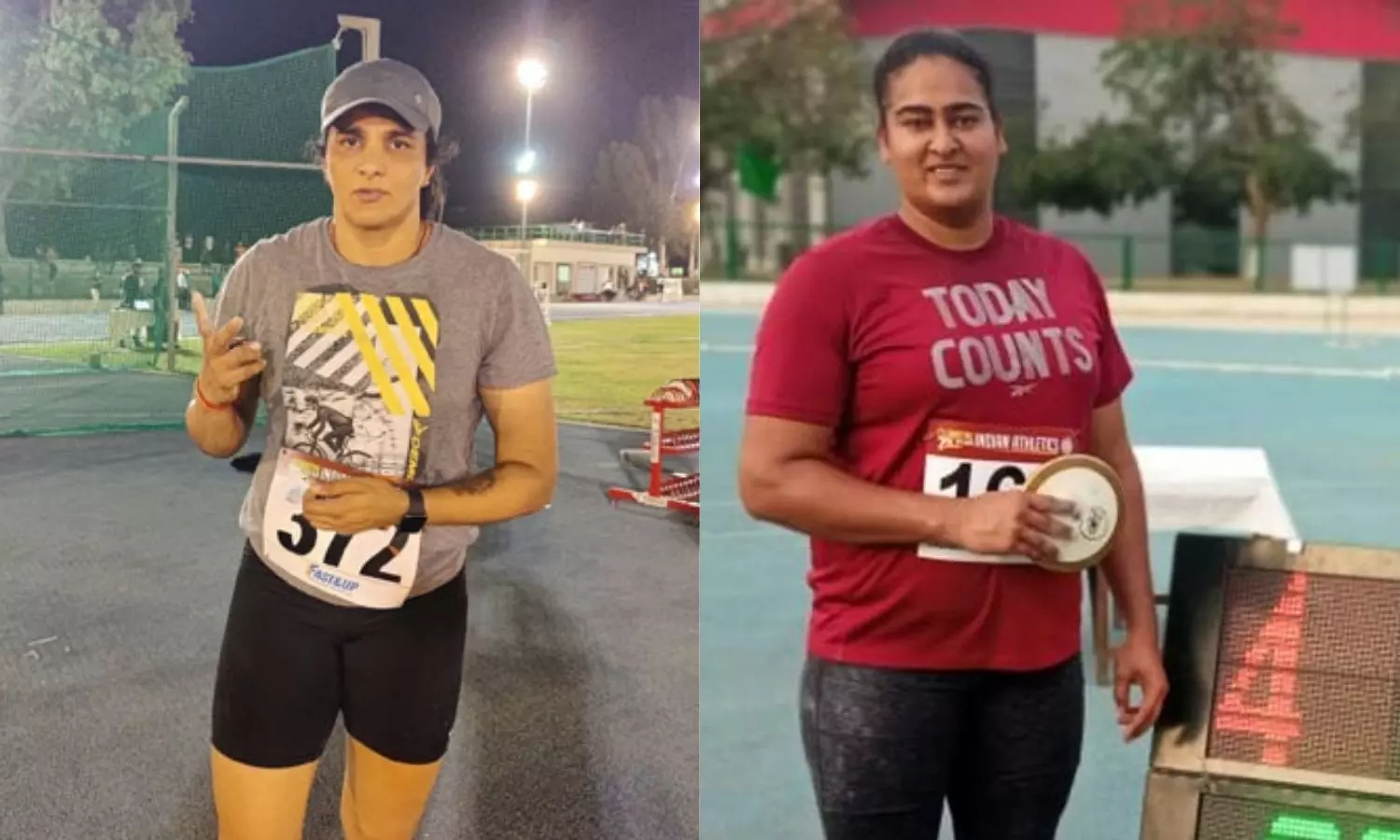Know Why
Seema Punia vs Kamalpreet Kaur: Why 2 Indian Tokyo Olympics-bound athletes are at dispute?
Indian discus thrower Seema Punia has sought a hyperandrogenism test on her fellow team member Kamalpreet Kaur.

Seema Punia and Kamalpreet Kaur (Source: Athletics Federation of India)
Indian discus thrower Seema Punia, who qualified for Tokyo Olympics on Tuesday by breaching the Olympic qualification mark at the Inter-State National Athletics Championships, has sought a hyperandrogenism test on her fellow team member Kamalpreet Kaur.
Kaur, who managed to qualify for the Games 10 days before Seema, managed the impossible, throwing the disc to a distance of 66.59m, the first woman in India to do so. This feat caught the discus thrower from Haryana by surprise, and she, therefore, raised concerns about Kaur's genuineness and seeking a hyperandrogenism test from the federation and the Sports Authority of India.
Punia wrote to the federation on June 30, raising concerns about the recent improvement in Kaur's performance, hinting towards the probability of Kaur taking hyperandrogenism doses.
Punia had told Sportstar, "When she threw 65m (at the Federation Cup) I was the first to congratulate and appreciate her here. But when she crossed 66m, and I saw the footage, I had my doubts. Beyond a point, sheer power cannot help a woman thrower go that distance. It requires technique, fitness, agility, a lot of other things, none of which she has."
What is Hyperandrogenism?
Hyperandrogenism is a medical condition that causes a person to produce high levels of hormones. There are various forms, but the one the IAAF regulated was hyperandrogenism in intersex women that led to them having testosterone levels that were much higher than the average for females. Men and women produce testosterone, but men generally produce much more.
Under the rules, the World Athletics Federation IAAF would initiate a three-stage medical examination process if it suspected a female athlete had hyperandrogenism. Often a sudden and dramatic improvement in performance led to suspicion. The IAAF believes testosterone is the most significant factor influencing athletic performance and so feels hyperandrogenic women have an unfair athletic advantage over other female athletes, and their testosterone should be lowered.
IAAF, however, clearly defines 'Restricted Events' for athletes with Differences of Sex Development (DSD) as 400m, 400m hurdles, 800m, 1500m, one-mile races and all other track events over distances between 400m and one mile (inclusive), whether run alone or as part of a relay event or a combined event. None of the field events, including discus throw, doesn't fall under the hyperandrogenism review.
Developments
Soon after Seema raised concern, the Athletics Federation of India (AFI) said that the Grievance Committee will look into the Olympic-bound Seema Punia's demand for a hyperandrogenism test on fellow discus thrower Kamalpreet Kaur.
In a recent interview with Times of India, Kaur alleged that Punia couldn't bear her loss at the Federation Cup in March, when Kaur sealed her Olympic berth by breaking Krishna Poonia's 2012 national record 64.76m, with a throw of 65.06m.
